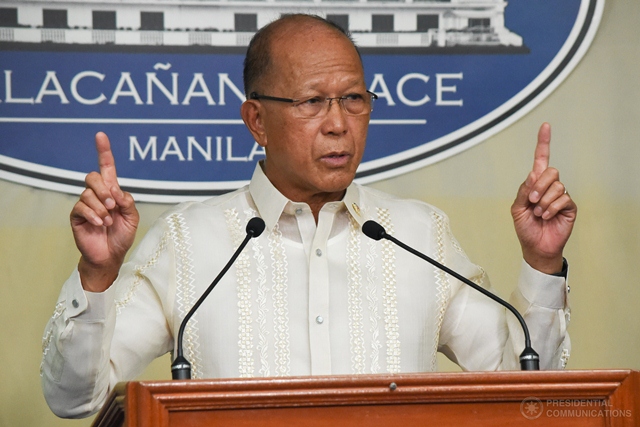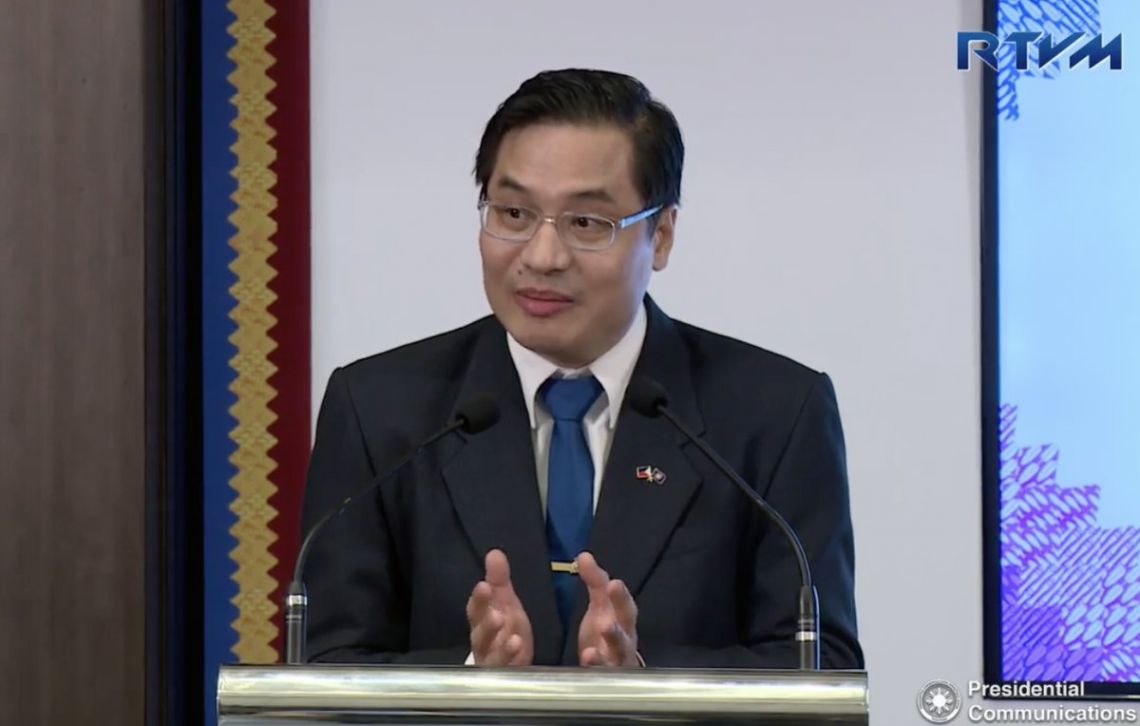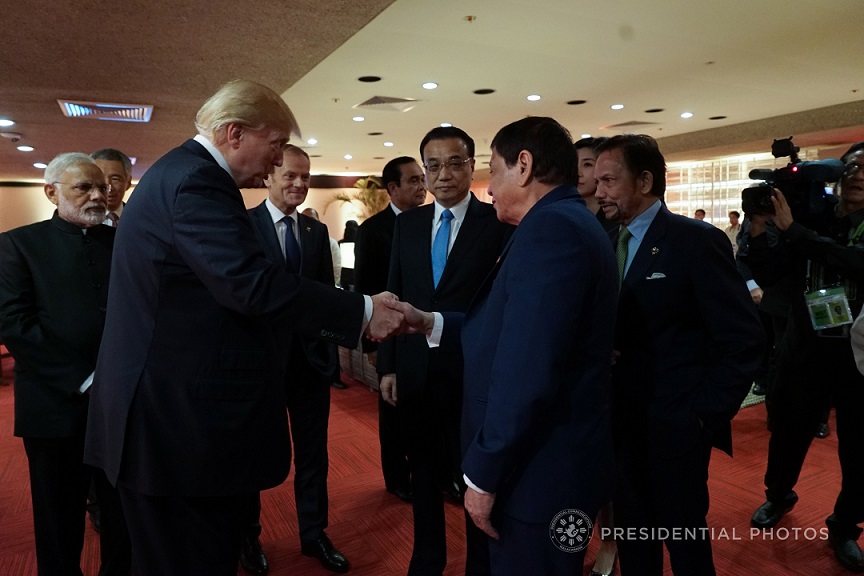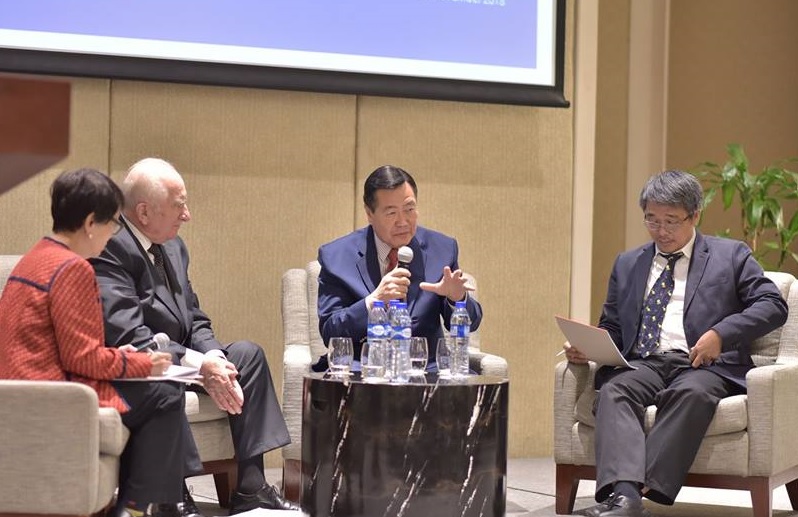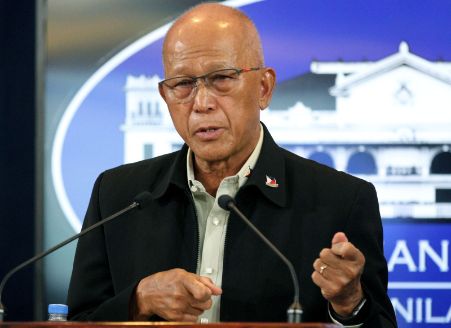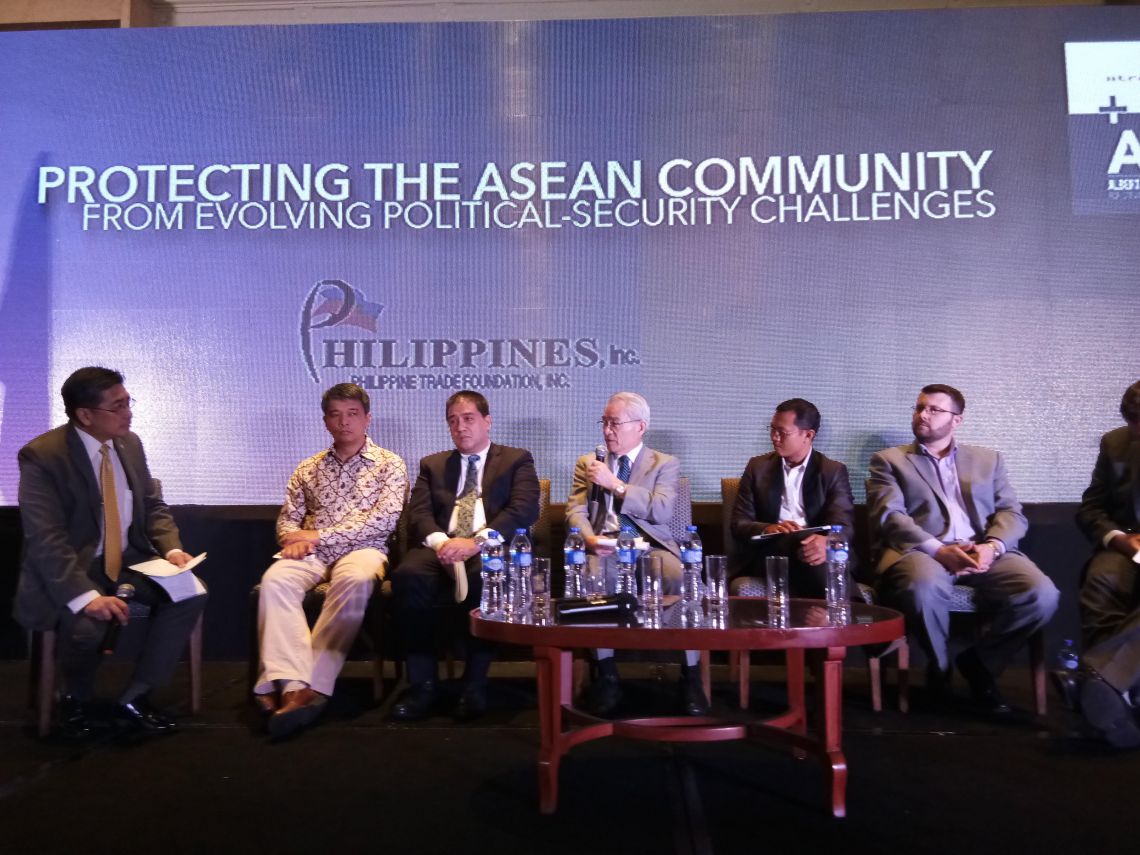
Experts believe the Code of Conduct on the South China Sea would not be enough to solve the maritime dispute in the South China Sea.
The ASEAN-China Code of Conduct in the South China Sea would not be enough to quell the dispute in the contested waters, experts said in a forum on the eve of the 31st meeting of leaders of the Association of Southeast Asian Nations (ASEAN) and summit with dialogue partners to be held in Manila next week.
“A piece of paper is not enforceable if parties do not honor their promises,” Defense Secretary Delfin Lorenzana said in his keynote speech at the “ASEAN Leadership Amid a New World Order,” held in Makati City Nov. 8.
A framework of the COC in the South China Sea, which was adopted by ASEAN foreign ministers last August, is expected to be affirmed by the leaders during next week’s meeting.
The framework outlines the preamble and general provisions, the principles, basic undertakings and final clauses that will constitute the COC. (See South China Sea code will not cover bilaterally disputed areas, says China)
The South China Sea, which covers among others the Spratlys Islands, Paracels and Macclesfield Bank, has been claimed by China, Taiwan, as well as other ASEAN countries Malaysia, Vietnam, Brunei and the Philippines.
Negotiations for the details of the COC will be done in next year’s ASEAN meetings to be chaired by Singapore.
Gregory Poling, director of the Asia Maritime Transparency Initiative, however, believes “there will be no actual negotiations on binding the COC,” given the slow pace it has taken since ASEAN and China signed the Declaration on the Conduct of Parties in the South China Sea (DOC) in 2002. (See VERA FILES FACT SHEET: Timeline of the ASEAN and China Code of Conduct in the South China Sea)
Former Foreign Affairs Secretary Roberto Romulo urged ASEAN to reshape its current government structure to a “rules-based framework,” if it wants to be a superpower.
The Arbitral Court decision on July 12, 2016 ruled that China’s claim to the resources in South China Sea had “no legal basis,” rendering its nine-dash line invalid. (See PH wins: Arbitral court invalidates China’s 9-dash line)
Currently, the ASEAN “lacks teeth on non-compliance,” such as for the South China Sea dispute, Romulo said.
“The only way that’s going to happen is if they understand the rule of law. And I don’t mean to be sarcastic, but to pay attention to the Hague decision,” he added, referring to the Arbitral Court.
China’s unwillingness to abide by the decision remains a problem, Australian professor Christopher Roberts of the University of New South Wales said. “There is the question of to what extent ASEAN will trust China to abide by the (COC).”
Unlike the decision, the COC framework would not resolve sovereignty disputes in the South China Sea, Dr. Renato de Castro, professor at the De La Salle University International Studies Department, said, adding that it is short on details and contains principles and provisions mentioned in the COC.
“This has been worsened by a lack of leadership from among us. In broader context, one can say that ASEAN is adrift,” former Foreign Secretary Albert Del Rosario, head of the Stratbase ADR Institute, said.
